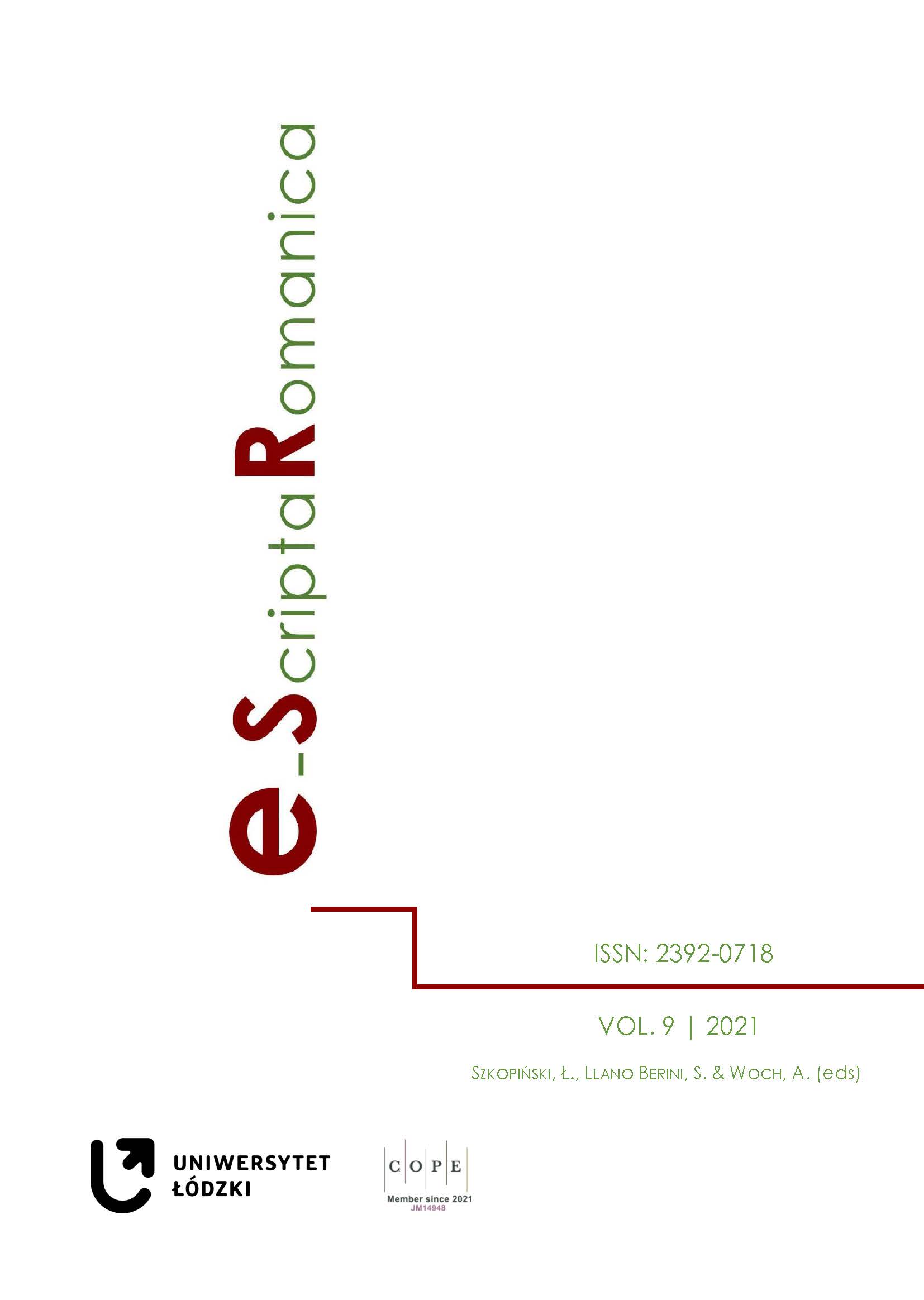The Royal Madness in the "Estoria de España" of Alfonso X the Wise (1252-1284)
DOI:
https://doi.org/10.18778/2392-0718.09.14Keywords:
Middle Ages, Castile and León, Alfonso X the Wise, Estoria de España, madnessAbstract
This article proposes to study the royal madness in the Estoria de España, a chronicle retracing the history of Spain from its origins, written at the end of the 13th century under the aegis of the King of Castile and León, Alfonso X the Wise. In the Middle Ages, the paradigm of madness was clearly codified and referred to a certain number of topics, such as illness, sin, or specific physical attributes, which could concern all categories of the population. Nevertheless, the royal figure is normally excluded from this paradigm because madness and all the disturbances it entails would undermine the very essence of royalty. Strictly speaking, the king can be associated with other forms of misconduct assimilated to insanity, such as sin or divine retribution, but not with mental illness as such. In this context, how does the Estoria de España, which narrates the history of Spain through its kings, reconcile the image of the madness of certain kings - particularly the Roman emperors - inherited from its sources with the conceptions of the 13th century? After a reminder of the conception of madness in the Middle Ages, I analyse the concept of madness under the reign of Alfonso X, through the study of the legal code of the Siete Partidas, and the Estoria de España in order to understand its meaning and function in the narration of historical facts.
References
ALPHONSE X (1843). Las Siete partidas, LÓPEZ, G. (ed.). Madrid : Compañía general de impresores y libreros del reino.
Google Scholar
ALPHONSE X (1906). Primera crónica general. Tomo I, Texto : Estoria de España que mandó componer Alfonso el Sabio y se continuaba bajo Sancho IV en 1289, MENENDEZ PIDAL, R. (ed.). Madrid : Bailly Bailliere.
Google Scholar
AUGUET, R. (1975). Caligula ou le pouvoir à vingt ans. Paris : Payot.
Google Scholar
ÉCOLE BIBLIQUE DE JERUSALEM (1998). La Bible de Jérusalem, traduite en français sous la direction de l’École biblique de Jérusalem. Paris : Éditions du Cerf.
Google Scholar
ESCURIGNAN, S. (2021). Contre-modèles : une exemplarité à rebours. In ESCURIGNAN, S. Une genèse pour l’Espagne, le récit des origines dans la Estoria de España d’Alphonse X le Sage (1252-1284). Paris : e-Spania Books, pp. 290-296.http://books.openedition.org/esb/3377 [30/06/2021].
Google Scholar
DOI: https://doi.org/10.18778/2392-0718.09.14
FRITZ, J.-M. (1992). Le Discours du fou au Moyen Âge. Paris : PUF.
Google Scholar
DOI: https://doi.org/10.3917/puf.fritz.1992.01
GONZÁLEZ GARCÍA, F. J. (2012). Las fuentes del relato de la invasión de los almujuces en la Estoria de Espanna de Alfonso X el Sabio. Mélanges de la Casa de Velázquez, 42-41, pp. 185-203.
Google Scholar
DOI: https://doi.org/10.4000/mcv.4404
HUGONIOT, C. (2004). De l’infamie à la contrainte. Évolution du statut de l’acteur sous l’Empire romain. In HUGONIOT, C., HURLET, F. & MILANEZI, S. (ed.), Le statut de l’acteur dans l’Antiquité grecque et romaine, Actes du colloque de Tours 3 et 4 mai 2002. Tours : Presses universitaires François Rabelais, pp. 213-240.
Google Scholar
DOI: https://doi.org/10.4000/books.pufr.8578
IOGNA-PRAT, D. (2000). Ordonner et exclure. Cluny et la société chrétienne face à l’hérésie, au judaïsme et à l’islam (1000-1150). Paris : Flammarion.
Google Scholar
JIMENEZ DE RADA, R. (1987). Roderici Ximenii de Rada Historia de rebus hispanie sive historia gothica, Corpus Christianorum, Continuatio mediaevalis, LXXII. FERNANDEZ VALVERDE, J. (ed.). Turnhout : Brepols.
Google Scholar
LAHARIE, M. (1991). La Folie au Moyen Âge, XIe – XIIIe siècles. Le Havre : Le Léopard d’Or.
Google Scholar
LEGROS, H. (2012). La Folie dans la littérature médiévale. Études des représentations de la folie dans la littérature des XIIe, XIIIe et XIVe siècles. Rennes : Presses Universitaires de Rennes.
Google Scholar
DOI: https://doi.org/10.4000/books.pur.56051
LÓPEZ ESTRADA, F. (ed.) (1999). Poema del Cid. Madrid : Editorial Castalia.
Google Scholar
RÉGNIER-BOHLER, D. (1985). In DUBY, G. & ARIÈS, P. (ed.). Histoire de la vie privée, vol. 2. Paris : Seuil.
Google Scholar
SÉNÈQUE (2004). La constance du sage, MARECHAUX, P. (ed. & trad.). Paris : Payot et Rivages.
Google Scholar
SUÉTONE (1993). Vies des douze Césars, I-III, AILLOUD, H. (ed. & trad.). Paris : Les Belles Lettres.
Google Scholar
TUY, L. DE (2003). Lucae Tudensis Opera omnia. Tomus I. Chronicon mundi, FALQUE, E. (ed.). Turnhout : Brepols.
Google Scholar
ZINK, M. (1992). Les voix de la conscience. Caen : Paradigme.
Google Scholar
Downloads
Published
How to Cite
Issue
Section
License

This work is licensed under a Creative Commons Attribution-NonCommercial-NoDerivatives 4.0 International License.











